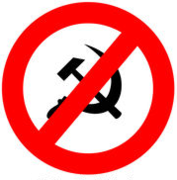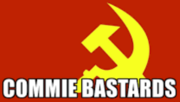CovOps

 Location : Ether-Sphere Location : Ether-Sphere
Job/hobbies : Irrationality Exterminator
Humor : Über Serious
 |  Subject: As over 100,000 rally for Ukraine, Germany announces vast defense spending increase that may upend European security policy Subject: As over 100,000 rally for Ukraine, Germany announces vast defense spending increase that may upend European security policy  Sun Feb 27, 2022 6:57 pm Sun Feb 27, 2022 6:57 pm | |
| European leaders have for years sought to forge from their fractious ranks a robust response to a rising Russian threat — without much success. But just days after Russia’s invasion of Ukraine, the Kremlin suddenly faces a continent that has rarely appeared so united.

As Europe’s biggest economy, which had long been the key obstacle to more decisive action against Russia, Germany dramatically changed course this weekend as Chancellor Olaf Scholz announced a vast increase in the country’s defense spending and greenlighted arms deliveries to Ukraine. Not long after, the European Union announced it will finance and deliver weapons, even fighter jets, to Ukraine — a “watershed” move for the bloc.
In Germany, where 100,000 people turned out Sunday in Berlin to protest the invasion, the moves marked a seismic shift for a country that has been allergic to involvement in international conflict since the end of World War II.
“What has happened in the last few days has been a serious wake-up call for Europe, a serious wake-up call for the NATO alliance and, tragically and very sadly for Ukraine, a wake-up call too late in the day,” said Richard Dannatt, a retired general and former British army chief. “We should have seen what [Russian President] Vladimir Putin has been up to.”
Germany’s shift appears to be enabling a new approach from the E.U., which said Sunday that it plans to block all Russian-owned, -registered or -controlled aircraft — including oligarchs’ private jets — from its skies and will ban some Russian state media. The bloc also announced that it would spend over $500 million on lethal arms and nonlethal supplies such as fuel and protective equipment for Ukraine.
“For the first time ever, the European Union will finance the purchase and delivery of weapons and other equipment to a country that is under attack,” European Commission President Ursula von der Leyen said Sunday. “This is a watershed moment.”
Marcel Dirsus, a German political scientist and fellow at the Institute for Security Policy at Kiel University, said the E.U. announcement Sunday was an indication of the kinds of ripple effects the earlier German pivot could have. “I think it’s highly unlikely that something like this would have happened against Germany’s opposition,” he said.
What’s still unclear is whether and how these changes will affect Ukraine. Germany won’t be sending troops to Ukraine, and neither will any other NATO members, which have been wary of being drawn into a direct confrontation with nuclear weapons-armed Russia.
NATO’s stance on Ukraine has long, in essence, been that membership has its privileges: While the alliance may be willing to offer support — both lethal and nonlethal — it won’t get directly involved in sending troops to defend Ukraine from outside attack, as it would with any NATO member.
Russia’s invasion hasn’t changed that calculus — much to the frustration of Ukrainians who have been seeking NATO membership for years, including President Volodymyr Zelensky.
“We were left by ourselves. Who is ready to go to war for us? Honestly, I don’t see anybody. Who is ready to give Ukraine guarantees of NATO membership?” Zelensky asked in a speech after Russia invaded.
Not all E.U. nations are part of NATO. Finland and Sweden, for example, have remained outside the alliance, even though the current crisis has appeared to align the two countries more closely with NATO than was previously the case, despite Russian warnings that it may take military action if the two countries join the alliance.
Putin has “achieved something which many people have been trying to achieve for a long time — European unity, Western unity and an increased willingness to take action,” said Ian Kearns, a co-founder and former executive director of the European Leadership Network, who has long been active in efforts to create diplomatic channels between the West and Russia.
For the countries that are already NATO members, the German pivot on defense could have profound effects in the long run. Speaking in the German parliament on Sunday, Scholz called Russia’s attack on Ukraine “a turning point in the history of our continent” and said the German military will receive a one-off additional payment of over $110 billion — about twice Germany’s defense budget last year.
“Better and more modern equipment, more staff, that costs a lot of money,” Scholz told lawmakers in a special session
Scholz committed to exceeding the NATO defense spending target of 2 percent of GDP “from now on, every year.” Last year Germany spent an estimated 1.53 percent of its annual economic output on defense, well below the 2 percent NATO target.
“We are not only striving for this goal because we have promised our friends and allies that we will increase our defense spending to 2 percent of our economic output by 2024, but we do this for ourselves, too, for our own safety,” Scholz said.
The plans will still need to be approved by lawmakers, but there appeared to be widespread support for them Sunday.
“There has been an awakening, not just by the political class, but also by ordinary voters,” said Dirsus, the German political scientist.
A few hours after Scholz addressed the Bundestag, at least 100,000 people turned out in Berlin to protest the invasion. They stretched from the Victory Column to the Brandenburg Gate — where the Berlin Wall once divided East and West.
Ukrainian flags and colors were dominant, with others holding signs denouncing Putin and calling on NATO to enforce a no-fly zone. Many Germans welcomed the change in their government’s tone, but were disappointed it took so long.
“Olaf Scholz is two weeks too late with all these things,” said Henning Ramke, 31, from Berlin. “The government was always the last in Europe to stand behind Ukraine.”
During previous crises, including after the 2014 annexation of the Crimean Peninsula by Russia, Germany had hesitated to swing more directly into confrontation with a country that helped defeat the Nazis. Germany’s deep economic relationship with Russia is decades old and, many critics say, has led to a foreign policy orthodoxy that long held back Europe from sharper criticism of the Kremlin.
In a sign of the deep historic ties between Germany and the former Soviet Union, anti-Russian protesters who rallied in Berlin on Sunday passed Soviet tanks that line the Soviet War Memorial in central Berlin.
One reason for Germany’s disappointing response, in the eyes of allies, has been the lack of public support until now. Polls have shown opposition to weapons deliveries or taking a harder line with Russia. Thorsten Weiss shared that view. Then Russia invaded, which he called “inconceivable.”
“It’s a difficult situation for Germany. I was opposed at first, but have since found it good and the only way to do something against what’s happening,” the 60-year-old Berliner said.
Germany’s lagging defense spending had long been defended across the German political spectrum, even as its international allies voiced discontent. Scholz’s Social Democratic Party was among core opponents of a major increase in spending.
The German army’s chief of staff, Lt. Gen. Alfons Mais, said last week that “the army that I am allowed to lead is more or less powerless” against Russia amid the current crisis. Defense associations have warned that the German military is underfunded and lacks crucial equipment.
The first signs of a substantial break in tradition came Saturday, when Germany announced that it would rush 1,000 antitank weapons and 500 Stinger missiles to Ukraine and embraced broad restrictions on Russian banks that it had previously rebuffed.
.https://www.washingtonpost.com/world/2022/02/27/europe-germany-defense-russia-ukraine/
  |
|

